Blog
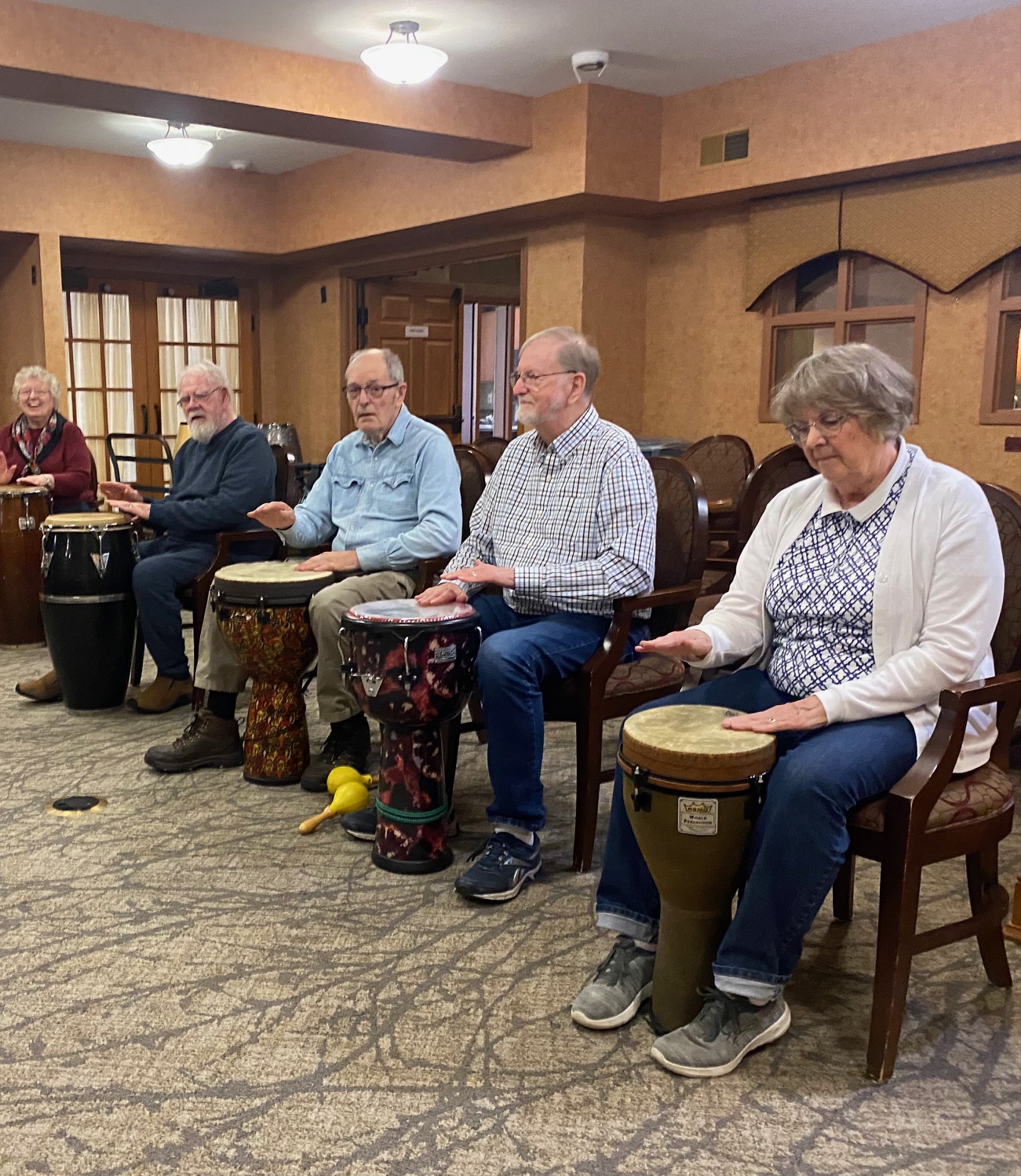

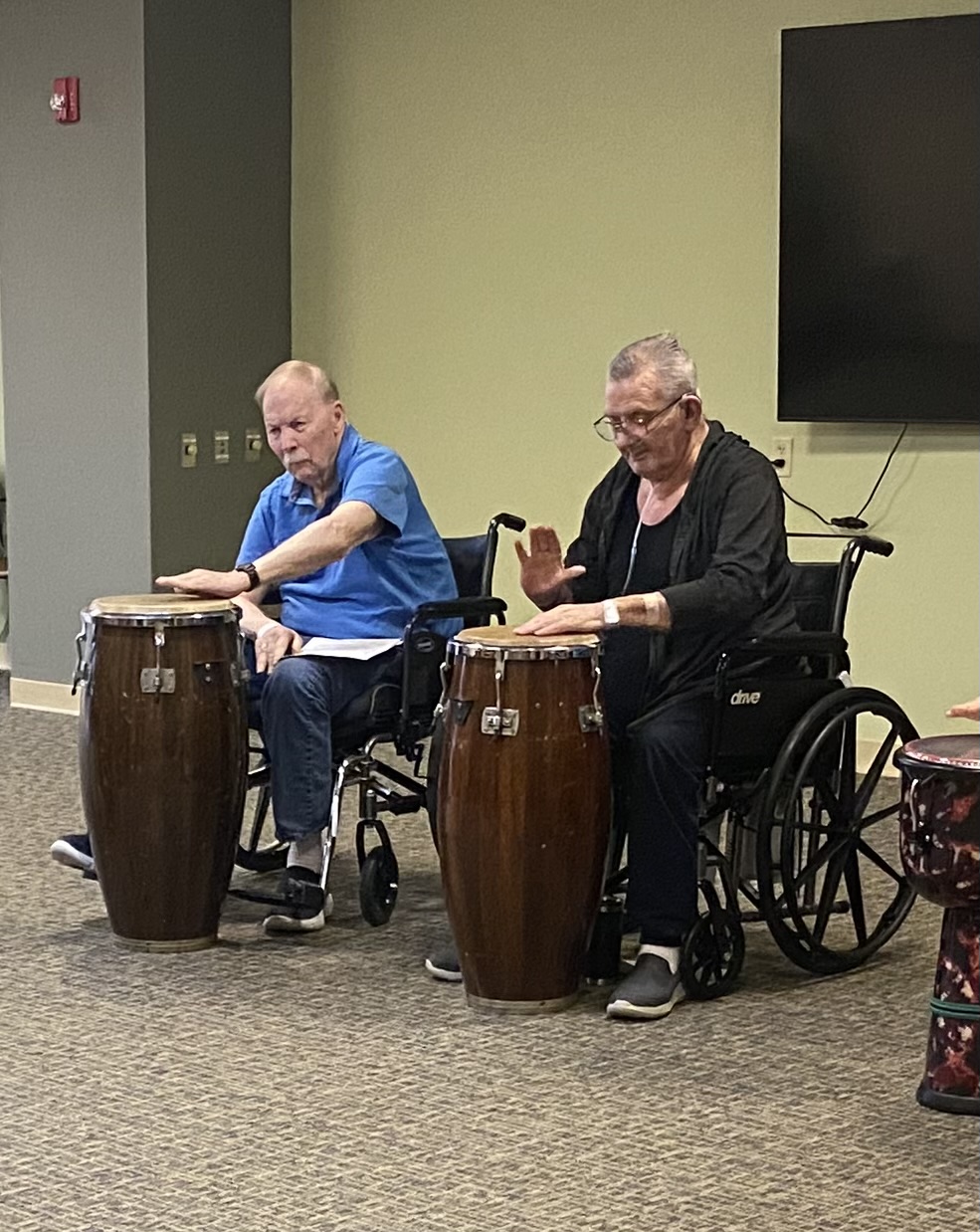
This image features the spiral galaxy NGC 941, which lies about 55 million light-years from Earth. The data used for this image were collected by Hubble’s Advanced Camera for Surveys (ACS). The beautiful NGC 941 is undoubtedly the main attraction in this image; however, this hazy-looking galaxy was not the motivation for the data being collected. That distinction belongs to an astronomical event that took place in the galaxy years before: the supernova SN 2005ad. The location of this faded supernova was observed as part of a study of multiple hydrogen-rich supernovae, also known as type II supernovae, in order to better understand the environments in which certain types of supernovae take place. Whilst the study was conducted by professional astronomers, SN 2005ad itself owes its discovery to a distinguished amateur astronomer named Kōichi Itagaki, who has discovered over 170 supernovae.
This might raise the question of how an amateur astronomer could spot something like a supernova event before professional astronomers — who have access to telescopes such as Hubble. The answer is in part that the detection of supernovae is a mixture of skill, facilities and luck. Most astronomical events happen over time spans that dwarf human lifetimes, but supernova explosions are extraordinarily fast, appearing very suddenly and then brightening and dimming over a period of days or weeks. Another aspect is that professional astronomers often do not spend that much time actually observing. There is a great deal of competition for time on telescopes such as Hubble, and then data from a few hours of observations might take weeks, months, or sometimes even years to process and analyse to their full potential. Amateur astronomers can spend much more time actually observing the skies, and sometimes have extremely impressive systems of telescopes, computers and software that they can put to use.
So many supernovae are spotted by skilful amateurs such as Itagaki that there is actually an online system set up for reporting them (the Transient Name Server). This is a big help to professional astronomers, because with supernova events time is truly of the essence. After the discovery of SN 2005ab was reported, professional astronomers were able to follow up with spectroscopic studies and confirm it as a type II supernova, which eventually led to its location being included in this study with Hubble. Such a study wouldn’t be possible without a rich library of previous supernovae, built with the keen eyes of amateur astronomers.
[Image Description: A spiral galaxy, seen face-on from Earth. The spiral arms of the galaxy are bright but not well defined, merging into a swirling disc with a faint halo of dimmer gas around it. The core glows brightly in a lighter colour and has a bit of faint dust crossing it. Two redder, visually smaller galaxies and a bright star are prominent around the galaxy, with more tiny objects in the background.]
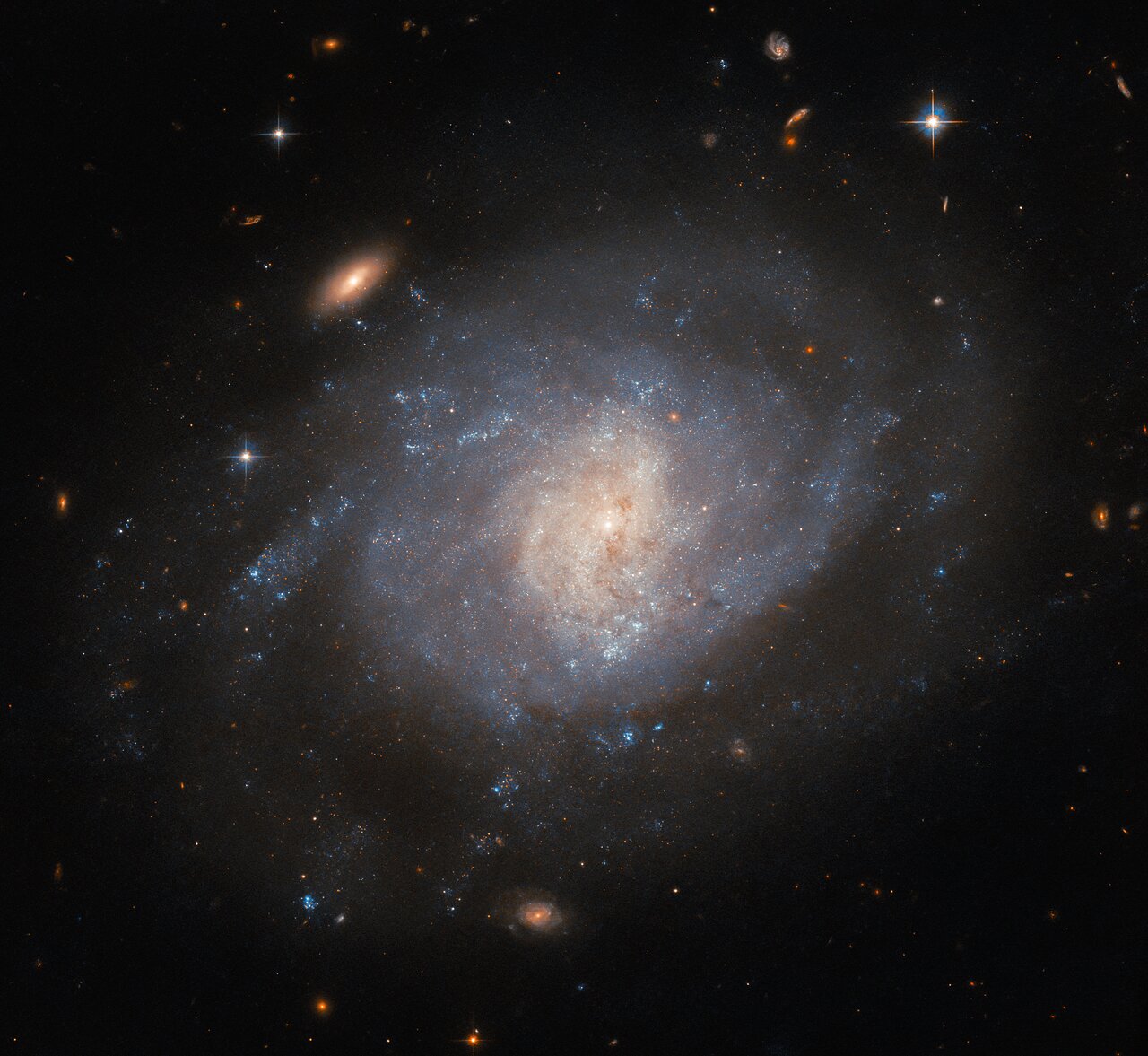
more...
Arturo Sandoval is a Cuban-American jazz trumpeter, pianist, timbalero, and composer. While living in his native Cuba, Sandoval was influenced by jazz musicians Charlie Parker, Clifford Brown, and Dizzy Gillespie. In 1977 he met Gillespie, who became his friend and mentor and helped him defect from Cuba while on tour with the United Nations Orchestra. Sandoval became an American naturalized citizen in 1998. His life was the subject of the film For Love or Country: The Arturo Sandoval Story (2000) starring Andy García.
Sandoval has won 4 Grammy Awards, Billboard Awards and one Emmy Award. He performed at the White House and at the Super Bowl (1995).
more...Joseph Raymond Conniff (November 6, 1916 – October 12, 2002) was an American bandleader and arranger best known for his Ray Conniff Singers during the 1960s.
Conniff was born November 6, 1916, in Attleboro, Massachusetts, United States, and learned to play the trombone from his father. He studied music arranging from a course book.
After serving in the U.S. Army in World War II (where he worked under Walter Schumann), he joined the Artie Shaw big band and wrote many arrangements for him. After his stint with Shaw, he was hired in 1954 by Mitch Miller, head of A&R at Columbia Records, as the label’s home arranger, working with several artists including Rosemary Clooney, Marty Robbins, Frankie Laine, Johnny Mathis, Guy Mitchell and Johnnie Ray. He wrote a top-10 arrangement for Don Cherry‘s “Band of Gold” in 1955, a single that sold more than a million copies. Among the hit singles Conniff backed with his orchestra (and eventually with a male chorus) were “Yes Tonight Josephine” and “Just Walkin’ in the Rain” by Johnnie Ray; “Chances Are” and “It’s Not for Me to Say” by Johnny Mathis; “A White Sport Coat” and “The Hanging Tree” by Marty Robbins; “Moonlight Gambler” by Frankie Laine; “Up Above My Head“, a duet by Frankie Laine and Johnnie Ray; and “Pet Me, Poppa” by Rosemary Clooney. He also backed up the albums Tony by Tony Bennett, Blue Swing by Eileen Rodgers, Swingin’ for Two by Don Cherry, and half the tracks of The Big Beat by Johnnie Ray. In these early years Conniff produced similar-sounding records for Columbia’s Epic label under the name of Jay Raye(which stood for “Joseph Raymond”), among them a backing album and singles with the American male vocal group Somethin’ Smith and the Redheads.
more...John Philip Sousa Portuguese: [ˈso(w)zɐ]; November 6, 1854 – March 6, 1932) was an American composer and conductor of the late Romantic era known primarily for American military marches. He is known as “The March King” or the “American March King”, to distinguish him from his British counterpart Kenneth J. Alford. Among Sousa’s best-known marches are “The Stars and Stripes Forever” (National March of the United States of America), “Semper Fidelis” (official march of the United States Marine Corps), “The Liberty Bell“, “The Thunderer“, and “The Washington Post“.
Sousa began his career playing violin and studying music theory and composition under John Esputa and George Felix Benkert. Sousa’s father enlisted him in the United States Marine Band as an apprentice in 1868. He left the band in 1875, and over the next five years, Sousa performed as a violinist and learned to conduct. In 1880, he rejoined the Marine Band and served there for 12 years as director, after which Sousa was hired to conduct a band organized by David Blakely, P.S. Gilmore‘s former agent. Blakely wanted to compete with Gilmore. From 1880 until his death, Sousa focused exclusively on conducting and writing music. He aided in the development of the sousaphone, a large brass instrument similar to the helicon and tuba.
Upon the outbreak of World War I, Sousa was awarded a wartime commission of lieutenant commander to lead the Naval Reserve Band in Illinois. He then returned to conduct the Sousa Band until his death in 1932. In the 1920s, Sousa was promoted to the permanent rank of lieutenant commander in the naval reserve.
more...It was Halloween and the sky looked like a creature. Exactly which creature, the astrophotographer was unsure (but possibly you can suggest one). Exactly what caused this eerie apparition in 2013 was sure: one of the best auroral displays that year. This spectacular aurora had an unusually high degree of detail. Pictured here, the vivid green and purple auroral colors are caused by high atmospheric oxygen and nitrogen reacting to a burst of incomingelectrons. Birch trees in Tromsø, Norway formed an also eerie foreground. Frequently, new photogenic auroras accompany new geomagnetic storms.
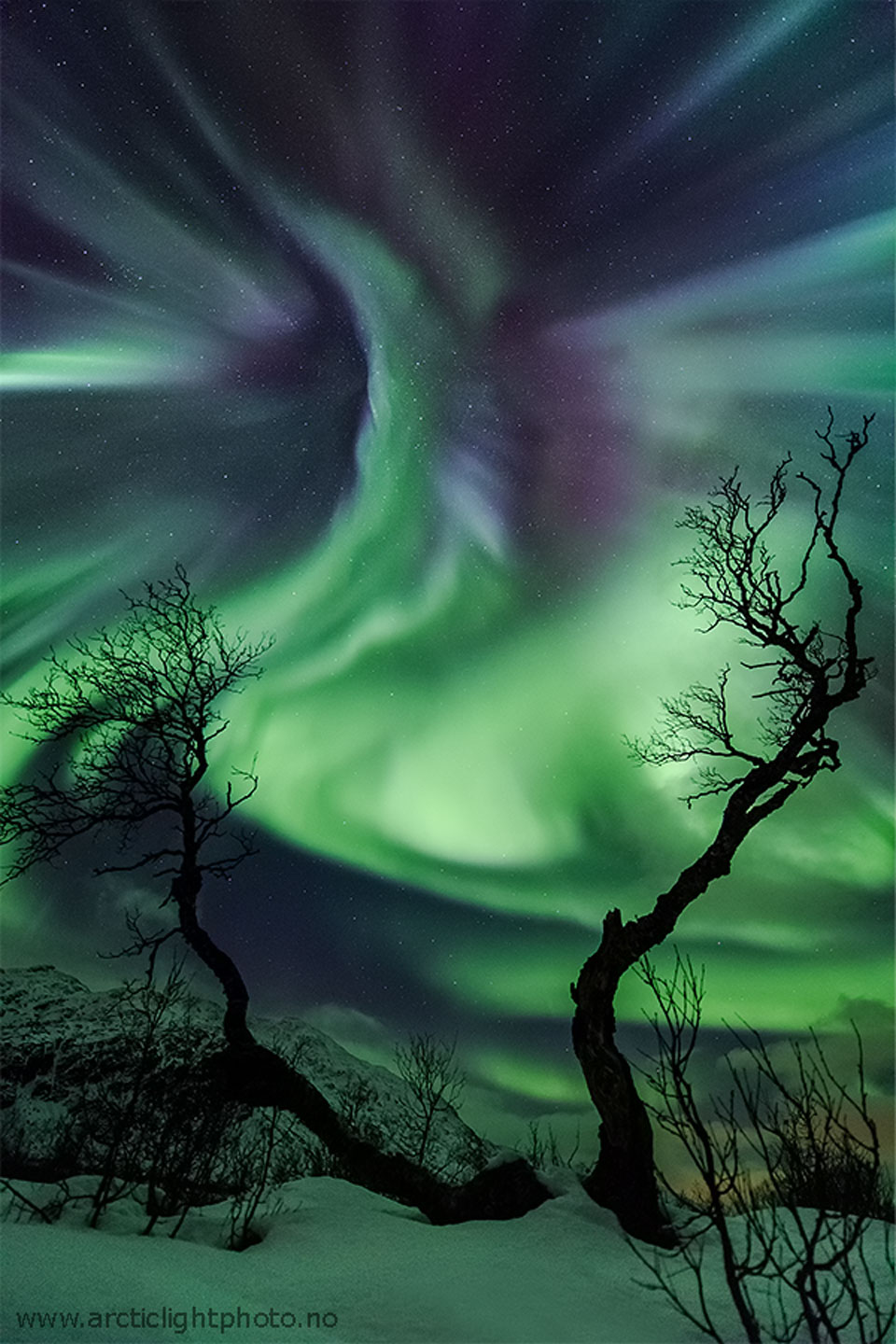
Neil Cowley (born 5 November 1972) is an English contemporary pianist and composer. He has also released music as part of Fragile State, the Green Nuns of the Revolution, and the Neil Cowley Trio. With his trio, he appeared on Later… with Jools Holland in April 2008 and won the 2007 BBC Jazz Award for best album for Displaced. In 2018, Cowley announced he was working on a new electronic focused solo project. In 2020, Cowley announced his debut solo album, Hall of Mirrors.
more...Ingram Cecil Connor III (November 5, 1946 – September 19, 1973), who was known professionally as Gram Parsons, was an American singer, songwriter, guitarist, and pianist. He recorded as a solo artist and with the International Submarine Band, the Byrds, and the Flying Burrito Brothers, popularizing what he called “Cosmic American Music”, a hybrid of country, rhythm and blues, soul, folk, and rock.
Parsons was born in Winter Haven, Florida, and developed an interest in country music while attending Harvard University. He founded the International Submarine Band in 1966, but the group disbanded prior to the 1968 release of its debut album, Safe at Home. Parsons joined the Byrds in early 1968 and played a pivotal role in the making of the Sweetheart of the Rodeo album, a pioneering country rock album and a seminal progressive country recording. After leaving the group in late 1968, Parsons and fellow Byrd Chris Hillman formed The Flying Burrito Brothers in 1969; the band released its debut, The Gilded Palace of Sin, the same year. The album was well received but failed commercially. After a sloppy cross-country tour, the band hastily recorded Burrito Deluxe. Parsons was fired from the band before the album’s release in early 1970. Parsons spent the first half of 1971 with Keith Richards of the Rolling Stones, living in his French villa Nellcôte during the recording sessions for Exile on Main Street, though he contributed very little to the recording process itself. After traveling around Britain with friends in late 1971, he was treated for heroinaddiction and returned to the U.S., where he was introduced to Emmylou Harris, who assisted him on vocals for his first solo record, GP, released in 1973. Although it received enthusiastic reviews, the release failed to chart. His health deteriorated due to several years of drug abuse culminating in his death from a toxic combination of morphine and alcohol in 1973 at the age of 26. A posthumous solo album, Grievous Angel, peaked at number 195 on the Billboard chart.
Parsons’s relatively short career was described by AllMusic as “enormously influential” for country and rock, “blending the two genres to the point that they became indistinguishable from each other.” He has been credited with helping to found the country rock and alt-country genres. His posthumous honors include the Americana Music Association “President’s Award” for 2003 and a ranking at No. 87 on Rolling Stone‘s list of the “100 Greatest Artists of All Time.”
During the trip, Parsons often retreated to the desert, while the group visited bars in the nearby hamlet of Yucca Valley on both nights of their stay. Parsons consumed large amounts of alcohol and barbiturates. On September 18, Martin drove back to Los Angeles to resupply the group with marijuana. That night, after challenging Fisher and McElroy to drink with him (Fisher disliked alcohol and McElroy was recovering from a bout of hepatitis), he said, “I’ll drink for the three of us,” and proceeded to drink six double tequilas. They then returned to the Joshua Tree Inn, where Parsons purchased morphine from an unknown young woman. After being injected by her in room #1, he overdosed. Fisher gave Parsons an ice-cube suppository, and later, a cold shower. Instead of moving Parsons around the room, she put him to bed in room #8 and went out to buy coffee in the hope of reviving him, leaving McElroy to stand guard. As his respirations became irregular and later ceased, McElroy attempted resuscitation. Her efforts failed and Fisher, watching from outside, was visibly alarmed. After further failed attempts, they decided to call an ambulance. Parsons was declared dead on arrival at Yucca Valley Hospital at 12:15 a.m. on September 19, 1973, in Yucca Valley. The official cause of death was an overdose of morphine and alcohol. To fulfill Parsons’ funeral wishes, Kaufman and a friend stole his body from Los Angeles International Airport and in a borrowed hearse, they drove it to Joshua Tree. Upon reaching the Cap Rock section of the park, they attempted to cremate Parsons’ body by pouring five gallons of gasoline into the open coffin and throwing a lit match inside; what resulted was an enormous fireball.
more...Arthur Ira Garfunkel (born November 5, 1941) is an American singer and actor who is best known for his partnership with Paul Simon in the folk rock duo Simon & Garfunkel. Born in Forest Hills, Queens, New York, Garfunkel became acquainted with Simon through an elementary school play of Alice in Wonderland and sought a partnership. Their combined presence in music began in the 1950s, and throughout the 1960s, the duo of Simon & Garfunkel achieved great chart success with tracks such as “The Sound of Silence“, “Mrs. Robinson” (written for the 1967 film The Graduate), “Scarborough Fair“, “The Boxer” and “Bridge over Troubled Water“, whose title also served as the name of Simon & Garfunkel’s final album in 1970. Simon & Garfunkel split for personal reasons, but the pair have occasionally reunited in the years since. Both men experienced success in solo careers in the years following the duo’s breakup.
Highlights of Garfunkel’s solo music career include one top 10 hit, three top 20 hits, six top 40 hits, 14 Adult Contemporary top 30 singles, five Adult Contemporary number ones, two UK number ones and a People’s Choice Award. Through his solo and collaborative work, Garfunkel has earned eight Grammy Awards, including a Lifetime Achievement Award. In 1990, he and Simon were inducted into the Rock and Roll Hall of Fame. In 2008, Garfunkel was ranked 86th in Rolling Stone magazine’s list of the 100 Greatest Singers of All Time.
more...Harold McNair (5 November 1931 – 7 March 1971) was a Jamaican-born saxophonist and flautist.
McNair was born in Kingston, Jamaica. He attended the Alpha Boys School under the tutelage of Vincent Tulloch, while playing with Joe Harriott (a lifelong friend who considered McNair his de facto younger brother), Wilton “Bogey” Gaynair, and Baba Motta‘s band. He spent the first decade of his musical career in The Bahamas, where he used the name “Little G” for recordings and live performances. His early Bahamian recordings were mostly in Caribbean musicalstyles rather than jazz, in which he sang and played both alto and tenor saxophone. He also played a calypso singer in the film Island Women (1958). In 1960, he recorded his first album, a mixture of jazz and calypso numbers entitled Bahama Bash. It was around this time that he began playing the flute, which would eventually become his signature instrument. Initially he had some lessons in New York, but he was largely self-taught. He departed for Europe later in 1960.
more...Arp 273 is a pair of interacting galaxies, 300 million light years away in the constellation Andromeda. It was first described in the Atlas of Peculiar Galaxies, compiled by Halton Arp in 1966. The larger of the spiral galaxies, known as UGC 1810, is about five times more massive than the smaller galaxy. It has a disc that is tidally distorted into a rose-like shape by the gravitational pull of the companion galaxy below it, known as UGC 1813. The smaller galaxy shows distinct signs of active star formation at its nucleus, and “it is thought that the smaller galaxy has actually passed through the larger one.
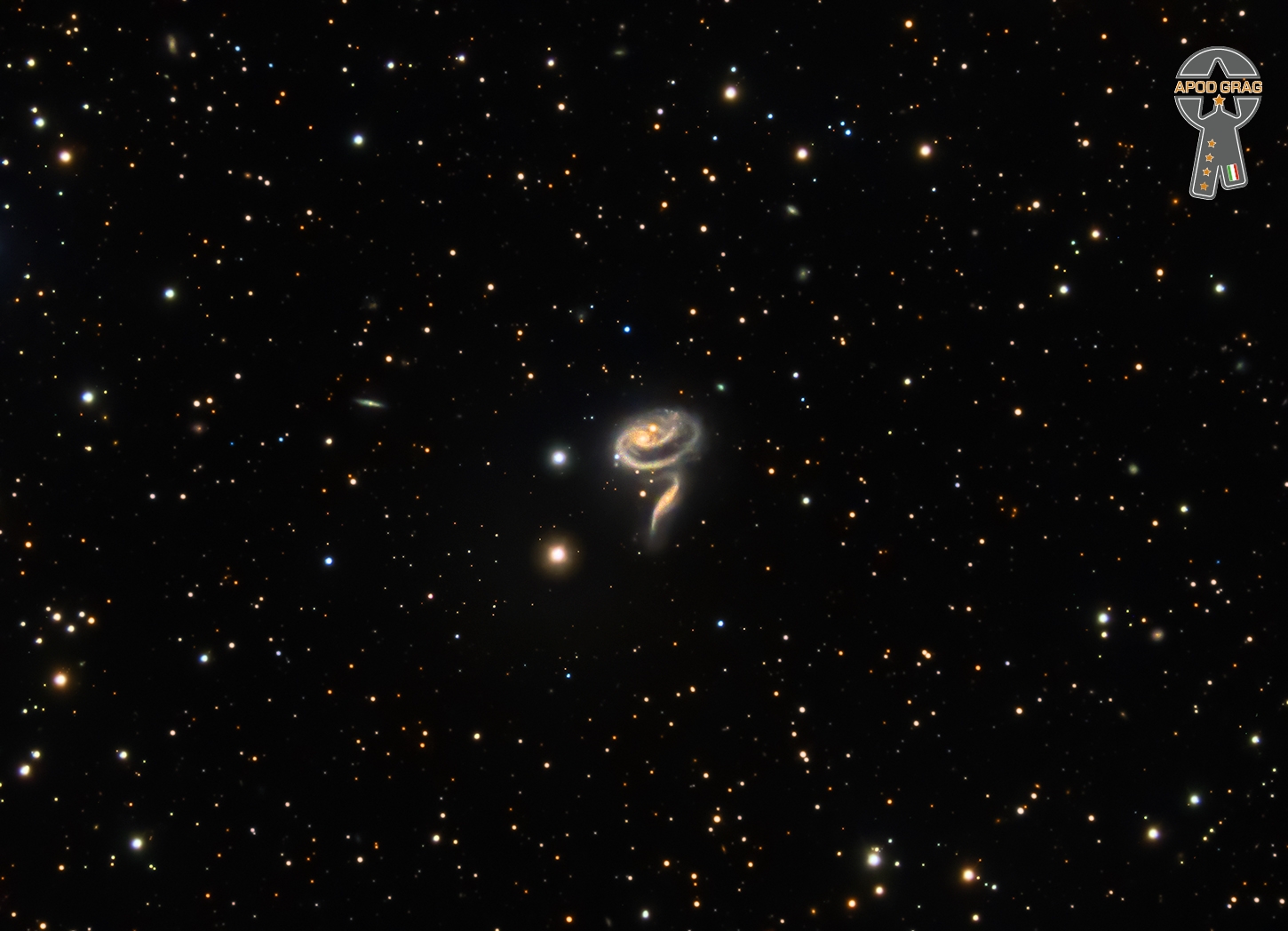
Jeffrey H. Lorber (born November 4, 1952) is an American keyboardist, composer, and record producer. After six previous nominations, Lorber won his first Grammy Award on January 28, 2018 for Best Contemporary Instrumental Album for Prototype by his band the Jeff Lorber Fusion.
Many of his songs have appeared on the Weather Channel‘s Local on the 8s segments and on the channel’s compilation albums, The Weather Channel Presents: The Best of Smooth Jazz and The Weather Channel Presents: Smooth Jazz II. He was nominated for a Grammy Award for his album He Had a Hat (Blue Note, 2007)
Lorber was born to a Jewish family in Cheltenham, Pennsylvania, the same suburb as Michael and Randy Brecker, with whom he would later play. He started to play the piano when he was four years old. After playing in a number of R&B bands as a teen, he attended Berklee College of Music, where he developed his love for jazz. At Berklee he met and played alongside guitarist John Scofield. He moved to Vancouver, Washington in 1972. For several years he studied chemistry at Boston University.
more...Lawrence Benjamin Bunker (November 4, 1928 – March 8, 2005) was an American jazz drummer, vibraphonist, and percussionist. A member of the Bill Evans Trio in the mid-1960s, he also played timpani with the Los Angeles Philharmonic orchestra.
more...
Carlos Valdés Galán (November 4, 1926 – December 4, 2007), better known as Patato, was a Cuban conga player. In 1954, he emigrated from La Habana to New York City where he continued his prolific career as a sideman for several jazz and Latin music ensembles, and occasionally as a bandleader. He contributed to the development of the tunable conga drum which revolutionized the use of the instrument in the US. His experimental descarga albums recorded for Latin Percussion are considered the counterpart to the commercial salsa boom of the 1970s. Tito Puente once called him “the greatest conguero alive today”.
more...More Posts
- Ray Mantilla Day
- Cal Green Day
- World Music with ESTRELLA MORENTE
- Daily Roots with Sizzla
- The Cosmos with NGC 5426/27
- Eric Reed Day
- Lalo Schifrin
- Skip James Day
- World Music with Alekos K. Vretos
- Daily Roots with Ijahman Levy
- The Cosmos with M16
- Eric Dolphy Day
- Lazy Lester Day
- World Music with Obo Addy
- Daily Roots with Bob Marley
- The Cosmos with Fleming 1
- Ernest Ranglin Day
- Billy Drummond Day
- World Music with Lela Tataraidze
- Daily Roots with the Skatalites